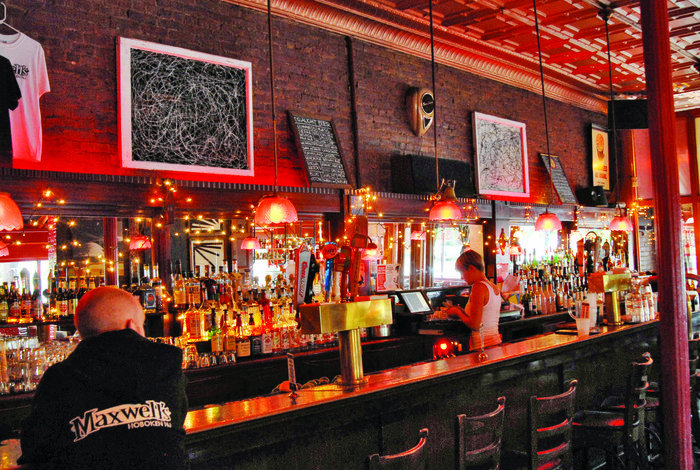As some of you may know, I have been booking Maxwell’s for more years than I care to admit. From time to time, I think about some of the changes I have seen over the last two and a half decades. I’ve decided to make some of these changes the subject of this issue’s column.
When I inherited the booking chair from Steve Fallon in the mid-’80s, shows would often end after last call. We were hardly unique among local venues in that regard. I soon realized that we would be better served if people could still hang out after the show, instead of being rushed out the door. We moved things up about an hour to allow that to happen, but shows still started and ended relatively late.
Over the years, they moved up a bit, but only slightly. When Maxwell’s resurfaced from its brief but dark period as a brew pub, we tried starting off more or less where we had left off prior to “Percussion Porter.” One of the early bookings of the rejuvenated venue was Americana artist Jimmie Dale Gilmore. I had him scheduled to hit the stage around 11 p.m., or perhaps later. Every person who called about the show complained about the time. The attendance that night was less than stellar, and, like most lessons learned, my schooling came the hard way.
Nowadays, it seems it’s almost impossible to start a show too early. Often on weekends we do two shows in one night, as many artists who appeal to older crowds are best served by being on stage by 9. At the same time, business dictates that we try and keep a crowd until later in the evening. The multiple-show scenario usually works out best for all involved, though it can be logistically trying.
One of the other major changes has been the development of touring packages. Touring packages themselves are nothing new; they’ve been around since the onset of rock ’n’ roll, with national tours such as Dick Clark’s “Caravan of Stars.” There have been some famous packages, like The Rolling Stones taking Ike and Tina Turner on the road with them in 1969. But as late as the 1980s and even 1990s, touring packages hadn’t really trickled down to the small club level. Bands playing Maxwell’s and similar venues usually toured without their own support acts, relying on local promoters to fill out the bill.
This meant there was more work to do for someone such as myself, but also more outlets for creativity. One of the more memorable bills back in the day was Urge Overkill, Superchunk and (on their first tour) Smashing Pumpkins. Ingenuity went not only into the actual booking of shows but also into trying to pacify everyone with the running order of shows. The closing slot is not necessarily the best one on a bill like that, but since the members of Urge Overkill fancied themselves rock stars, I knew they would want to close. The members of Superchunk, then and now, are much more humble and also knew there was nothing wrong with taking the middle slot. Smashing Pumpkins were on their first tour, but had a big push behind them already and were not happy about playing first. I appeased their people by pointing out that the reasoning behind it was that the other bands had played the venue previously, and they hadn’t.
In the burgeoning grunge era, Mudhoney and Soundgarden happened to be routed through Maxwell’s on the same night. There was a lot of excitement over that bill. I had Mudhoney close the show. My logic? I liked them better. Even though Soundgarden went on to enjoy considerably more commercial success, I still feel the same way.
Nowadays, most touring acts coming to small clubs bring their own support, but every now and then, I still get to pull a rabbit out of my hat.—07030
Our Digital Archive from 2000 – 2016
